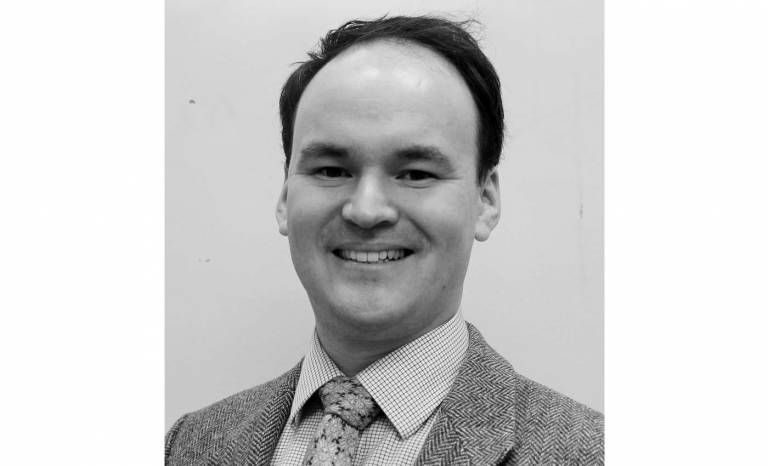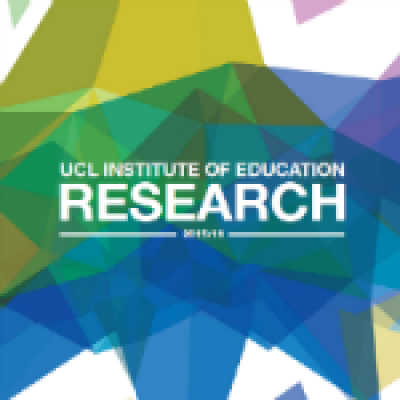Meet the mentors: David Wingfield
24 November 2016
We spoke to David Wingfield, Deputy Head of Bassett House School, who discussed his passion for providing academic excellence for children, the importance of clarity and his motivation to be a mentor.

Mentoring is an exciting and rewarding experience, both for the mentee and the mentor. Alumni mentors share informal guidance drawn from their own experiences about certain jobs, sectors and professions, and many are also willing to offer interview advice and look over CVs. Mentors can mentor current UCL students or other alumni.
David, what motivated you to become a mentor, and what do you hope to take from the experience?
I am very open to sharing my ideas, experience and enthusiasm for teaching with someone who is in the first stages of entering the profession. I do not expect mentoring to be a one-way learning and I hope to gain insight into the most up-to-date teacher training methods that are being used from mentees. Recently, the newly qualified teachers that have entered the school have brought with them a knowledge of the mastery approach to mathematics, a knowledge-base that I have since harnessed in order to develop the teaching and learning of mathematics in the school.
I have previously been a newly qualified teacher mentor and very much enjoyed working with newly qualified teachers in order to develop and influence their teaching practice.
I began my own teaching career under the oversight of some excellent, insightful mentors, and their patient guidance and advice equipped me with the resources and resilience to overcome some of the challenges of the teaching profession. I would like to offer the same support to teachers at the beginning of their careers.
What inspires your passion for teaching?
The day-to-day work with children, who delight, frustrate and surprise in equal measure. The ability to make a difference in the lives of others and to work to achieve selfless goals. I value the camaraderie of my fellow professionals and I feel privileged to be able to work in an environment where creativity, enquiry and enjoyment are highly-prized values. For me, teaching has a strong element of being a vocation, and this has shaped my values. I believe that strong pastoral care and teaching that includes children from across the ability range are the foundations of happiness and success.
I am driven by providing the best academic experience for children and enabling them to reach for their personal best. Much of my work involves preparing children for entrance examinations, and I find that the pressure placed upon me by this clear goal energises me and keeps me from any sense of complacency.
Is there any advice that you have been given in the past that still resonates with you?
'Teachers are often wrong but never in doubt': in other words, take care to be clear and confident in your communication with children, don't be afraid to admit when you are wrong or do not know the answer, but avoid confusing children with mixed messages and ambiguous expectations. The second piece of advice was given to me when I was struggling, as a newly qualified teacher, to manage my workload, and it was simply to prioritise the completion of tasks. Teacher workload has, if anything, increased since I was new to the profession, and I hold this piece of practical advice close to me on those days when it feels like there are many competing urgencies to attend to.
What are your ambitions for the future?
I am presently deputy head of a London preparatory school; I hope that I shall be successful in gaining my first headship in the next five years. I shall also be training to become an ISI inspector in the summer 2017. I have found the transition from classroom teacher to educational leadership and management to be stimulating, challenging and rewarding: helping teachers to be the best jobs in order to enable children to learn and develop is a great pleasure.
More information
Alumni wishing to register as a mentor need to register for the Alumni Online Community (AOC) and complete the 'Willing to Help' section. Once completed, you will appear in the Directory and show up in searches specified by mentees where the options you ticked match the options they searched.
An alumni number is required to register - for those who do not know theirs, contact alumni@ucl.ac.uk to request it. Mentees will not be able to see your contact information unless you have chosen to make this available - otherwise a message is sent initially.
To search for a mentor, alumni simply need to register for the AOC and head to the Directory where you can search through willing mentors using the parameters on the right-hand under 'willing to help'. When you have found an appropriate mentor, you can open their profile and click 'request mentor', which sends a message to them alerting them to your interest.
Students can register to access the mentoring area using their UCL email address, and search for mentors from there.
 Close
Close


